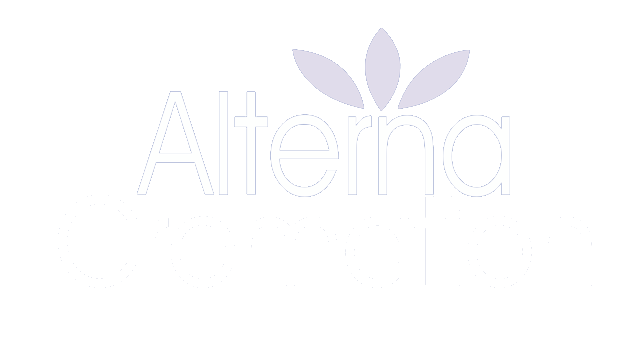Frequently Asked Questions
It is common to have questions about the funeral process. This section answers some commonly asked questions to help make this process easier for you. If additional questions arise, please feel free to contact us directly at the funeral home.
Medical Assistance in Dying (MAID)
What is medical assistance in dying?
Medical assistance in dying occurs when an authorized health care provider gives or administers medication to the patient that intentionally brings about the patient’s death at the request of the patient.
Who is eligible for medical assistance in dying?
In Manitoba, this procedure is only available where a patient meets the criteria set out in the federal legislation on MAID.
What if I change my mind after requesting medical assistance in dying?
Patients requesting medical assistance in dying are able to change their minds at any time. There is never any obligation to proceed.
Who is allowed to perform medical assistance in dying?
Members of Manitoba’s provincial MAID Clinical Team, who work closely with primary health care providers throughout the province, are the only legal administrators.
Dying at Home / Palliative Care
Is it possible to die at home?
Yes. Palliative/end-of-life care can be provided at home in Manitoba.
What happens when a palliative patient dies at home?
With an Anticipated Letter of Death, you can contact Alterna at the time of death and arrange for the deceased to be taken directly into our care. If you don’t have an Anticipated Letter of Death, emergency services will need to be called (911).
How do I arrange for end-of-life care and palliative care services?
Your primary health care provider can best guide you and make referrals. There are a number of Manitoba agencies that work together to provide this type of care.
What is the difference between palliative care and hospice care?
Both are forms of comfort care. Palliative care may or may not include treatment options, while hospice care has no curative intent and is for people who are not pursuing treatment.
Why is it better to die at home?
Many people prefer to end their life in a familiar setting, surrounded by those they love. Dying at home can provide you with a greater degree of control over your end-of-life experience.
Healing
What can help the grieving process?
Grieving the death of a loved one is a highly personal journey, and there is no right or wrong path to follow. That being said, accessing supports and resources is an important first step in the grieving process. There are several healing avenues to pursue, ranging from meditation to counselling to acupuncture.
How long can grief last after death?
There is no prescribed timetable for how long grief may last. While your life will be permanently changed by a loved one’s death, the most intense period of grief may last anywhere from a few weeks to a few years.
General Questions
Do you offer resources for writing an obituary?
Yes. Alterna offers obituary writing resources as well as a downloadable Obituary Workbook. We can also provide obituary writing services to help you with a first draft.
Where are you located?
Alterna Cremation is located in Winnipeg, just a few seconds north of the Perimeter on Henderson Highway (2495C Henderson Hwy).
Do you have a flower service?
Yes. We work with local florists that are committed to offering only the finest floral arrangements and are backed by their professionalism and prompt service.
Is a casket needed for cremation?
No. A funeral service with a casket can take place prior to cremation, but a casket is not necessary for the cremation itself. Alterna’s direct cremation service includes a simple container for the cremation as well as a dignified box for the remains. After cremation, the ashes of the deceased are often stored in an urn.
Can I scatter the cremated remains?
Yes. Cremated remains can be scattered in Manitoba, providing you follow provincial guidelines. You may choose to scatter the ashes yourself or to use Alterna’s scattering service.
How much does cremation cost in Winnipeg?
Alterna’s Direct Cremation Package costs $1395 plus GST.
When is the appropriate age to pre-plan final arrangements?
While there is no set age for pre-planning final arrangements, you should keep in mind your health, your financial position, and your plans. You may find peace of mind in making arrangements, so you don’t have to focus on them in the future.
Do I need to buy an urn?
No. While many people do elect to keep remains in a beautiful urn, you can also scatter ashes or simply keep them in the basic container provided by Alterna at no cost.
What size urn do I need?
Most full size (adult) urns have a capacity between 180-220 cubic inches. It will also depend if you wish to divide the remains into multiple urns, include personal items in the urn along with the remains, or keep the remains of more than one person in the urn (companion urn).
What is a scattering urn?
A scattering urn is a type of urn designed specifically for scattering ashes rather than storing them. Scattering urns may open and close conveniently, allow for small amounts of ash to be scattered at a time, and be simpler to transport.
What is cremation jewelry?
Cremation jewelry is jewelry that includes the remains of a deceased loved one. Some types of cremation jewelry actually incorporate ash into the material they are constructed from (such as glass or diamonds), while others involve a discrete vessel for the storage of a small amount of remains (more like a locket). Cremation jewelry can be a unique and personal way to keep a loved one’s memory close.
We are not having a service. Do we still need an obituary?
At Alterna, we strongly encourage you to write an obituary even if you aren’t having a service. An obituary allows the community to mark the passing of the deceased and will minimize confusion and inquiries about the death that has occurred. Alterna’s online obituary service is completely free for our families. There is no limit on length, and an online obituary is easy to share and access.
Can I donate my body to science?
Yes. In Manitoba, arrangements for donating your body to science can be made through the University of Manitoba’s Body Donation Program.




